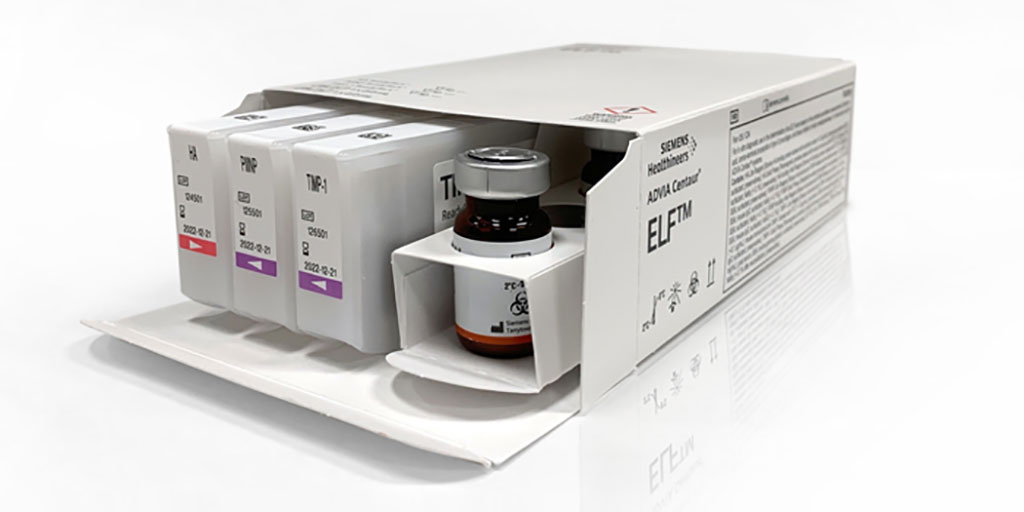Simple Blood Test Assesses Prognosis of Advanced Liver Fibrosis in NASH Patients
Posted on 17 Jun 2022
Non-alcoholic fatty liver disease (NAFLD) refers to a spectrum of diseases, from simple fatty liver to more-aggressive nonalcoholic steatohepatitis (NASH). While patients with NASH are more likely to develop progressive disease, which can result in cirrhosis, liver failure, or hepatocarcinoma (HCC), patients without histological evidence of NASH are also at risk. Progressive chronic liver disease (CLD) typically lacks signs and symptoms, with many patients remaining undiagnosed until uncompensated disease presents. Liver fibrosis versus the inflammatory process is recognized as the key driver of pathogenicity in NAFLD/NASH. Early recognition of progressive fibrosis and intervention is key for improved outcomes. Now, a non-invasive blood test that measures three direct markers of fibrosis provides a direct quantitative measure for the assessment of disease progression in patients with advanced fibrosis due to NASH.
The Enhanced Liver Fibrosis (ELF) Test from Siemens Healthineers (Erlangen, Germany) is the first routine, standardized, direct-biomarker panel for prognostic risk assessment in advanced fibrosis due to NASH. The ELF Test can assess active, dynamic fibrosis rather than the damage it has caused, allowing it to be used as a prognostic marker to identify the patients most at risk of progression to cirrhosis and LREs in patients with advanced fibrosis due to NASH. The ELF score combines three serum biomarkers, namely Hyaluronic acid (HA), Procollagen III N-terminal peptide (PIIINP) and Tissue inhibitors of metalloproteinase (TIMP-1). The three direct markers of the ELF test are complementary and, when combined into an ELF score, provide information that is prognostic for progression to cirrhosis and liver-related events.

Being a blood-based test, the ELF Test can readily support high-volume testing, does not require patient access to specialized imaging equipment or highly trained operators, and generally has lower incidence rates of failure and unreliable results reported for imaging modalities. The ELF Test provides healthcare professionals with access to non-invasive testing through a simple blood test available to all patients, including those with type 2 diabetes mellitus and obesity. It allows them to improve patient care by stratifying advanced NASH patients most at risk of progressing to cirrhosis and liver-related events as well as enhance patient management with a blood test that facilitates more frequent prognostic assessments.
The ELF Test is now included in the 2022 AACE NAFLD Clinical Practice Guidelines to help stratify NASH patients most at risk for progression to cirrhosis. The guideline underscores the value of utilizing direct blood-based biomarkers in the NASH care continuum and represents an opportunity to incorporate preventative care to address the anticipated tsunami of patients from developing cirrhosis or life-threatening liver related events.
Related Links:
Siemens Healthineers














